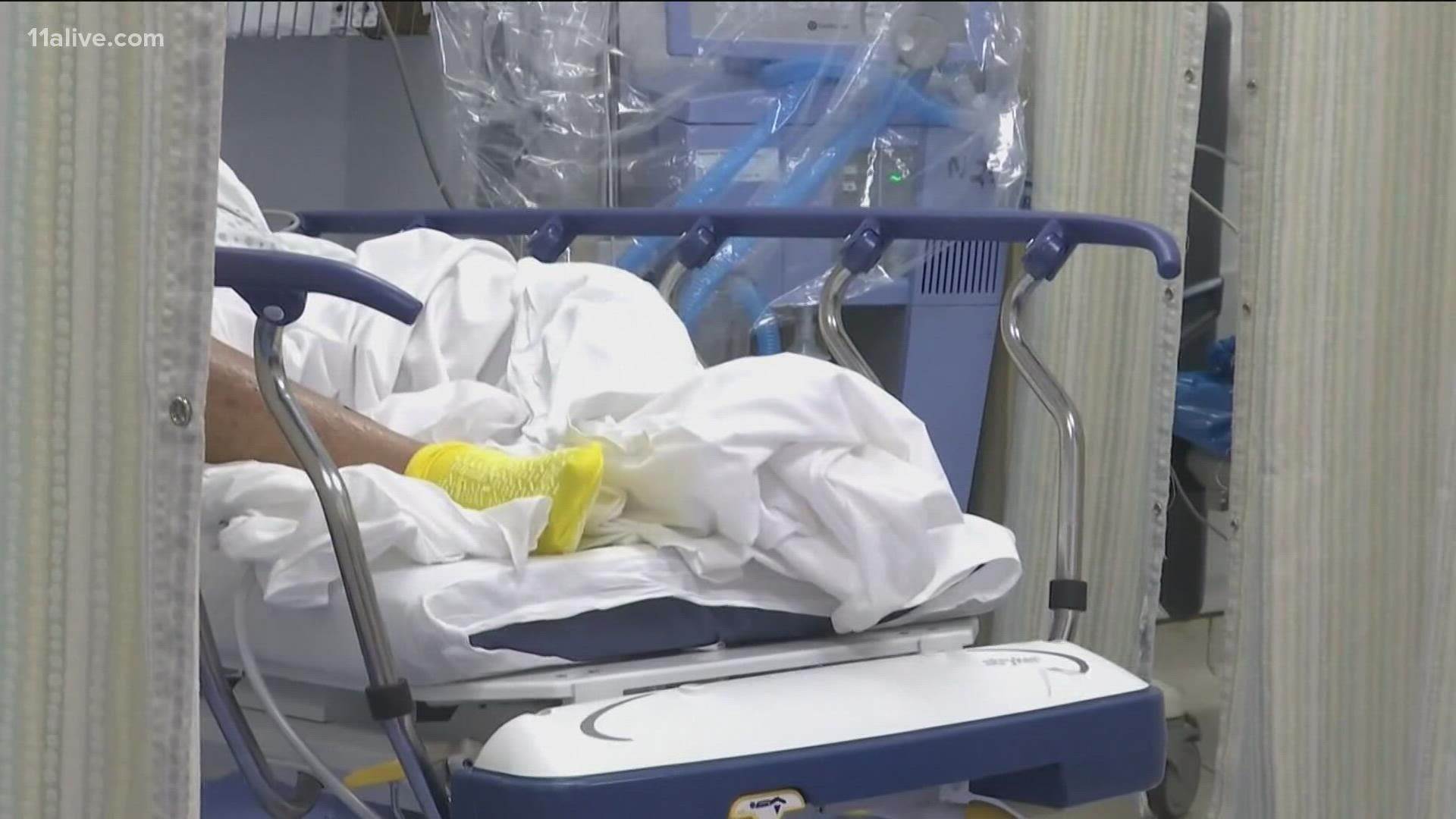ATLANTA — In his recent address, President Joe Biden called attention to a treatment for COVID-19 that has not gained much traction yet, monoclonal antibody treatments. He said healthcare facilities should focus on these kinds of treatments because they are working. However, there still aren't a lot of clinics giving the infusions.
An hour southwest of Atlanta, a small family clinic was one of the first independent healthcare facilities to start giving the treatments this past winter.
The husband and wife who run the clinic say they come in every morning to lines wrapped around their building with people hoping to get treatment.
"It's joy, they cry, they feel desperate and helpless, and we stay open all night long, until 4 a.m. to treat them," said PA-C Allan Imes.
Imes started trying to get doses of the monoclonal antibody treatments back in September of 2020. In January of this year, he finally got a steady supply to the Family Health Clinic in Zebulon and McDonough.
He says demand for the treatment has been nonstop, and people drive from all over Georgia to be treated at his clinic.
"It is hard. It wears out our staff. It wears us out. But it's the right thing to do. It's the right treatment. It works," he said.
However, Imes added that they don't just give the patient an infusion; they first have to test positive for COVID, have a chest x-ray, and often get a course of steroids or antibiotics to treat other issues caused by the virus. Then they get the synthetic antibodies infused through an IV into their system.
"We can alter an antibody in a lab genetically that does not affect your DNA but alters the virus's DNA in the spike protein area. So by killing that virus, we can lessen the impact of the virus," he explained.
Imes has treated hundreds of patients with the infusion and said they often start feeling better within a week. But, he can't treat people whose cases are severe.
"The biggest excluder for these antibodies is that patients are too sick, their oxygen is too low. That's the people who we can't do much for. They've gone too far and are too sick," he said.
If caught in time, though, Imes said the monoclonal antibody treatment could decrease the chance of someone ending up in the hospital by 80%. He also understands why so many people want to take those odds.
But even though the treatments work to keep people out of the hospital, providers say they're getting harder to find.
"We walk in every morning to lines wrapped around our buildings. And that's ok, that's what we are here for," said Lorrie Imes, the practice director at Family Health Clinics. "My job has turned almost full-time into accessing the monoclonal antibodies. We weren't having much trouble until last week.".
She said last week, the federal Health and Human Services department started requiring their approval for allocation of the medication, which started impacting them right away.
"We placed an order, and we got about 25% of what we asked for. And it's not going to be enough to get us through the next few days," she said.
Lorrie said it's frustrating because they know the treatments work, and for a long time, not many clinics in Georgia were giving them.
"A month ago, we were the only ones doing it, really doing it. Giving three infusions a day isn't doing it. Doing 20 to 30 is doing it," said Imes.
PA Allan Imes says they're working around the clock to get their patients the treatment they need.
"Most people don't want to do it the right way because it's too doggone hard," he said.
These treatments are not new, in fact, it's the same treatment President Donald Trump received when he contracted the virus in 2020.
But they are just now becoming more accessible. However, that's if these independent clinics can get the amount they need to treat the number of patients who want it.

